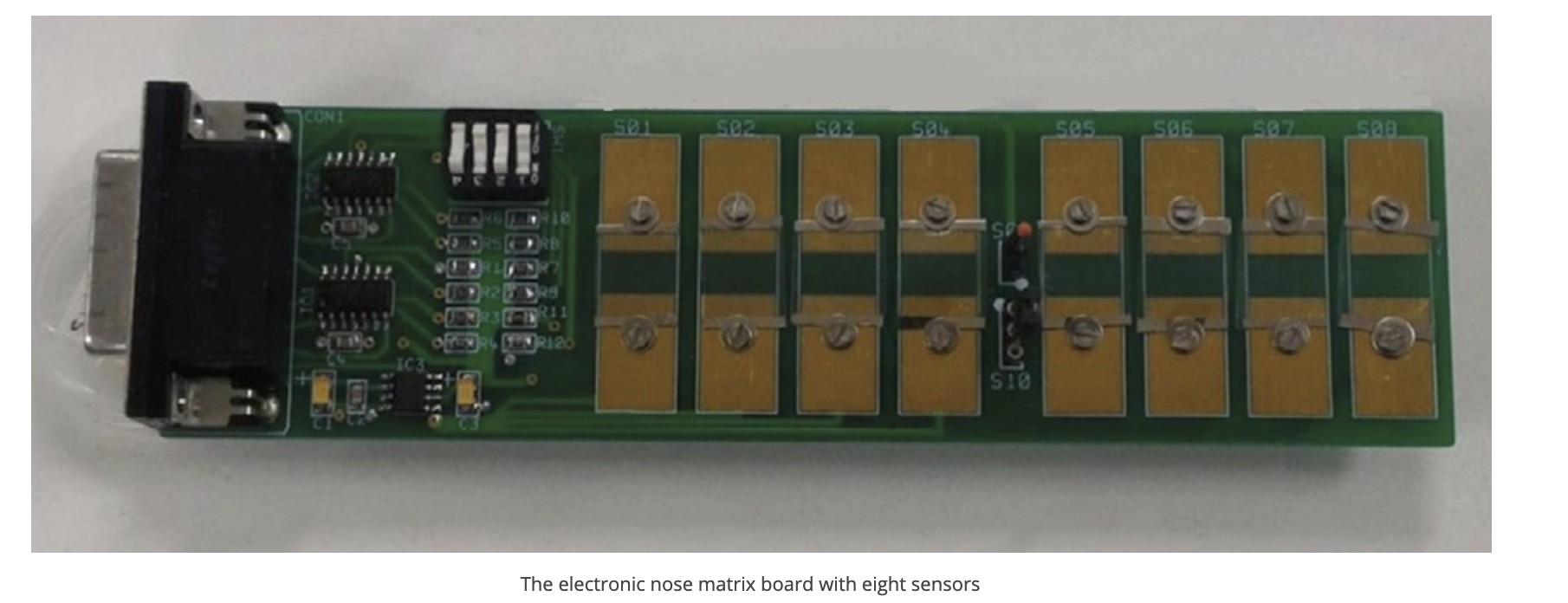Skoltech researchers and their colleagues from Russia and Germany have designed an on-chip printed ‘electronic nose’ that serves as a proof of concept for this kind of low-cost and sensitive devices to be used in portable electronics and healthcare. The paper was published in the journal ACS Applied Materials Interfaces.
The rapidly growing fields of Internet of Things (IoT) and advanced medical diagnostics require small, cost-effective, low-powered yet reasonably sensitive and selective gas-analytical systems like so-called ‘electronic noses’. These systems can be used for noninvasive diagnostics of human breath, such as diagnosing chronic obstructive pulmonary disease (COPD) with a compact sensor system also designed at Skoltech. Some of these sensors work a lot like actual noses — say, yours — by using an array of sensors to better detect the complex signal of a gaseous compound.
One approach to creating these sensors is by additive manufacturing technologies, which have achieved enough power and precision to be able to produce the most intricate devices. Skoltech senior research scientist Fedor Fedorov, Professor Albert Nasibulin, research scientist Dmitry Rupasov and their collaborators created a multisensor ‘electronic nose’ by printing nanocrystalline films of eight different metal oxides onto a multielectrode chip (they were manganese, cerium, zirconium, zinc, chromium, cobalt, tin, and titanium). The Skoltech team came up with the idea for this project.
“For this work, we used microplotter printing and true solution inks. There are a few things that make it valuable. First, the resolution of the printing is close to the distance between electrodes on the chip which is optimized for more convenient measurements. We show these technologies are compatible. Second, we managed to use several different oxides which enables more orthogonal signal from the chip resulting in improved selectivity. We can also speculate that this technology is reproducible and easy to be implemented in industry to obtain chips with similar characteristics, and that is really important for the ‘e-nose’ industry,” Fedorov explained.
In subsequent experiments, this ‘nose’ was able to sniff out the difference between different alcohol vapors (methanol, ethanol, isopropanol, and n-butanol), which are chemically very similar and hard to tell apart, at low concentrations in the air. Since methanol is extremely toxic, detecting it in beverages and differentiating between methanol and ethanol can even save lives. To process the data, the team used linear discriminant analysis (LDA), a pattern recognition algorithm, but other machine learning algorithms could also be used for this task.
So far the device operates at rather high temperatures of 200-400 degrees Celsius, but the researchers believe that new quasi-2D materials such as MXenes, graphene and so on could be used to increase the sensitivity of the array and ultimately allow it to operate at room temperature. The team will continue working in this direction, optimizing the materials used to lower power consumption.
Other organizations involved in this research include Kurnakov Institute of General and Inorganic Chemistry of the Russian Academy of Sciences; Yuri Gagarin State Technical University of Saratov; Karlsruhe Institute of Technology; Moscow Institute of Physics and Technology; and Breitmeier Messtechnik GmbH.
Contact information:
Skoltech Communications
+7 (495) 280 14 81

